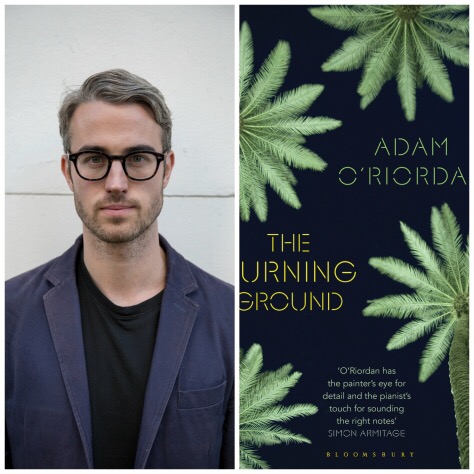Poet and Academic Director of Manchester Writing School Adam O’Riordan has released his much-anticipated debut collection of short stories set in the sun-drenched state of California.
Adam’s new book The Burning Ground is already earning glowing reviews from critics and the literary world, and was included in the Observer’s Books to Look Out For in 2017.
The publication further underlines the strength of the literary talent teaching at the respected Manchester Writing School, led by Poet Laureate Dame Carol Ann Duffy, along with leading literary colleagues covering fiction, poetry, place writing and children’s books.
The School boasts scores of successful graduates including novelists Wyl Menmuir, who was longlisted for the Man Booker Prize, and Andrew Michael Hurley, who won the Costa First Novel Award
The Burning Ground has been attracting media attention with Adam appearing on BBC’s Meet the Author, where Adam was interviewed by Jim Naughtie.
Adam explained about his experience of the dual-natured California and how it provides inspiration. He said: “You can be at the very centre of the city, you can be downtown, but in an hour’s drive you can be in the desert or you can drive up to Malibu by the ocean, and you’re constantly reminded of the elemental, the vast, you feel the pull of those primal things.
“What really drew me to (short stories) was this idea of invention, the idea of making these details of people’s lives. There is a wonderful freedom to that.
“You’re thinking about the most intense moments in these people’s lives and that gives you a sort of licence, you can think how do you condense a whole life to five or six key moments?”
In addition to The Burning Ground, the prolific author will also be launching his new series of poems, A Herring Famine, as part of the hugely successful Dame Carol Ann Duffy poetry and music nights at Manchester’s Royal Exchange.
Speaking on what makes poetry so special, Adam, who was previously the prestigious Poet-in-Residence at the Wordsworth Trust, told the BBC: “You can use it to protest, in a way, or at least in a way to make your voice heard, to share your experience, to give testimony to things.
“You have to let (poems) amass quietly in the background, you have to let them pile up over time. As long as you have something else to focus on, then the poems can slowly pile up.”







